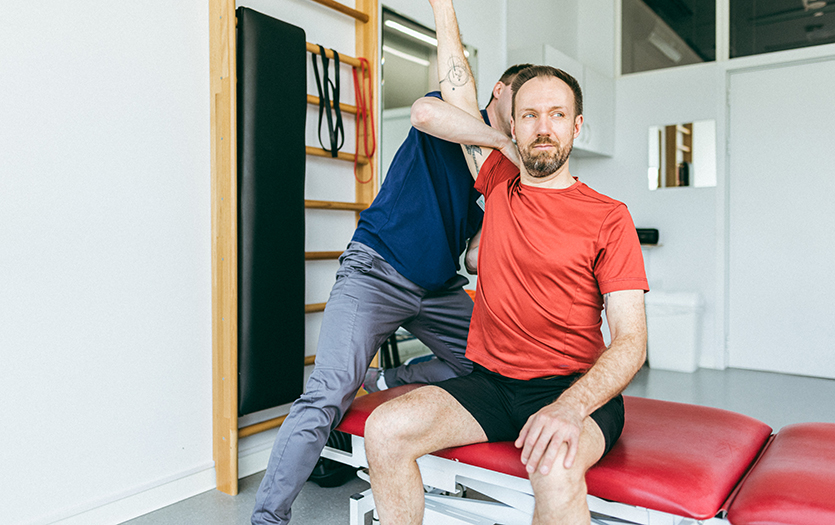
This post was written by Rhonda Ruch, CMA/clinical coordinator, Neurosciences Multispecialty Clinic.
Falling is the number one cause of trauma-related injuries for people ages 65 and older and is the most common cause of traumatic brain injuries and bone fractures. Falls can be debilitating, costly and contribute to a loss of independence due to injury. Parkview’s Fall Prevention Clinic believes that one fall is one too many. While falls are more common in the senior population, it is not normal as some believe. In this post, we’ll discuss the most vulnerable populations and how the clinic can help reduce fall risk.
Common causes of falls
Common conditions associated with falls include leg weakness, physical deconditioning, poor balance, difficulty walking, unsteadiness, muscle rigidity, postural instability, problems with muscle coordination or control that affect movement or balance, and loss of sensation in the legs due to nerve damage or disease.
Convenient, collaborative care
The Parkview Fall Prevention Clinic provides patients with an assessment by a multidisciplinary team in two appointments to help create a well-rounded, individualized treatment plan to reduce the risk of falls. This team includes professionals in neurology, physical therapy, occupational therapy, and pharmacy.
The team will assess the patient for a wide range of factors to determine fall risk, looking for:
- Neurological deficits that may contribute to falling or balance issues.
- Physical fitness, including assessing balance, strength, stamina and flexibility.
- The need for assistance with completing routine activities for daily living and can offer a home assessment for modifications to promote independence and safety.
- Medications and supplements you are taking to see if any could increase the risk of falling or cause side effects that may make you a higher fall risk.
The providers at the clinic may refer patients to specialty departments, like physical therapy, if needed. Additional testing might also be ordered, such as lab work to look for underlying causes of falling, balance or gait issues.
Other fall prevention topics that might be discussed at a clinic visit include:
- Personal health and fall history
- Avoiding home hazards
- Staying active to stay strong
- Choosing proper footwear
- Using assistive devices when appropriate
- Vision and hearing health to reduce dizziness that can increase your risk of falling
- Neurological or medical diagnosis that may contribute to an increased fall risk and targeted management recommendations
The results of the assessment will be discussed with the patient and their family members. They will leave with a written, personalized care plan. All information from the appointments will also be shared with the patient’s primary care provider for follow-up care.
Parkview’s team of specialists is passionate about reducing the risk of falling for vulnerable populations. Patients will need a physician referral to schedule an assessment at the clinic. If you have concerns about yourself or a loved one, speak with your primary care provider about what is appropriate. If you want to learn more about establishing care at Parkview, visit us here.




